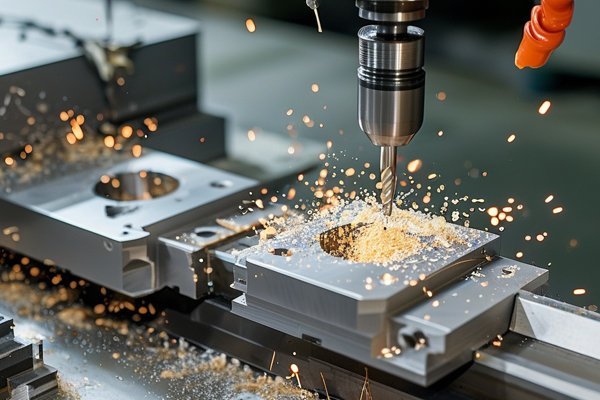: An Eye-Opening Statistic
Did you know that nearly 40% of manufacturing companies reported a decrease in production costs after implementing CNC (Computer Numerical Control) machining? This statistic highlights a significant advantage for businesses seeking efficiency amidst rising operational costs. With manufacturing relying heavily on precision and efficiency, custom CNC machining has emerged as a cornerstone for producing high-quality industrial parts. But what exactly are the benefits of this technology? In this comprehensive guide, we’ll explore the multitude of advantages that custom CNC machining offers, ensuring your understanding of this transformative process is crystal clear.
Understanding Custom CNC Machining
Before diving into the specific benefits, let’s clarify what custom CNC machining entails.
What is CNC Machining?
CNC machining is a subtractive manufacturing process where pre-programmed computer software controls the movement of machinery and tools. This technology can easily manipulate a range of materials such as metals, plastics, and composites. Custom CNC machining refers to the tailored approach of using CNC machines to create parts designed specifically for the unique requirements of a project or application.
The Importance of Customization
In an industry where precision and adaptability are paramount, custom solutions ensure that the specific nuances of a project or product are addressed. Manufacturers can design parts that fit specific measurements, tolerances, and functionalities, leading to superior outcomes and better performance.
Benefits of Custom CNC Machining for Industrial Parts
Let’s delve into the myriad benefits that custom CNC machining brings to the table.
One of the standout advantages of CNC machining is its unrivaled precision.
Custom CNC machining isn’t limited to one type of material or industry.
In a competitive market, speed is essential.
While the initial investment in CNC machinery can be significant, the long-term cost savings are undeniable.

Custom CNC machining allows for sophisticated designs that would be challenging to achieve through traditional methods.
Quality assurance is crucial in manufacturing, and CNC machining excels in this area.
As businesses grow, so do their manufacturing needs.
Implementing Custom CNC Machining in Your Business
Transitioning to or integrating CNC machining into your operations can seem daunting, but it doesn’t have to be.
Step 1: Assess Your Needs
Identify what types of parts you need, the materials you’ll be working with, and the specific tolerances required.
Step 2: Choose the Right Service Provider
Research and select a custom CNC machining service that aligns with your production goals. Look for experience, capabilities, technology, and client reviews.
Step 3: Start Small
Begin with a pilot project to test the waters. This allows you to evaluate the quality, speed, and reliability before scaling up production.
Step 4: Optimize Processes
Use data gathered during the pilot to refine your processes. Continuous improvement is key to making the most out of CNC technology.
: The Future of Custom CNC Machining
In today’s competitive landscape, the significance of custom CNC machining cannot be overstated. From boosting precision and flexibility to ensuring cost-effectiveness and quality, this technology is paving the way for innovative solutions across industries. By embracing custom CNC machining, manufacturers can not only meet current market demands but also position themselves for future growth.
As you reflect on the benefits and processes outlined in this blog, consider the transformative possibilities that custom CNC machining offers. Whether you’re refining a product design or scaling production, understanding and implementing these techniques will be essential to staying competitive in a rapidly evolving industry. The future of manufacturing lies in precision, adaptability, and innovation – and custom CNC machining is at the forefront of this evolution.
Final Thoughts
The importance of understanding custom CNC machining extends beyond the shop floor. It’s essential for decision-makers, engineers, and strategists in manufacturing to recognize how leveraging this technology can spell the difference between stagnation and success. The advantages are clear, and now is the time to act. Investing in custom CNC machining could very well revolutionize your production processes, improve your bottom line, and ensure that you remain a leader in your industry.
Why not take the first step towards embracing this game-changing technology?






